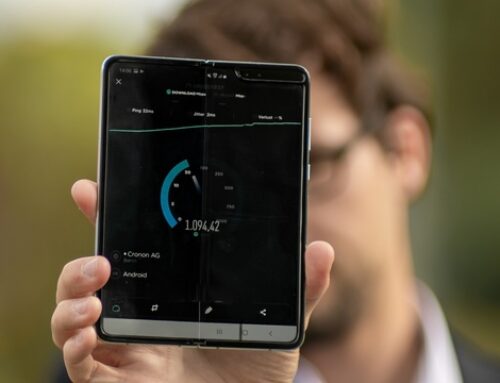According to Blade Runner, we only have 7 months left for the invention of sentient androids, but that seems unlikely at this point (I’m still hoping though). And we’re already four years late for Back to the Future’s flying cars and hover-boards.
Looking back, all of these predictions seem a little bit silly in comparison to how fast technology has actually progressed. We don’t have androids, we don’t have flying cars, we don’t even have a printer that works without having to beg and plead for it to just print your document correctly for once. Physical tech has lagged behind our predictions. No matter how hard we work, there’s only so efficient you can make a chemical process, like the one that powers the batteries any of this tech would require.
But what hasn’t slowed down… is digital technology. Smaller, lighter, and faster than anybody ever imagined even 30 years ago. Look at Blade Runner, they had sentient androids and still worked with magnetic tape recordings for data storage, not exactly a great prediction there Ridley Scott…
The computing power in your cell phone dwarfs even the most advanced supercomputer of the early 1990s. And it doesn’t take up an entire warehouse and enough power to run a small town. And all you use it for is to watch cat videos on Youtube… really?
So in a world where we’re all carrying around a supercomputer in our pocket, what are we going to do with it? (And please… don’t just say watch more cat videos, yes I know they’re adorable but come on, aim a little higher, please?) Why not run the internet ourselves?
When we’re all running around with supercomputers, why should we be putting our trust in these large tech conglomerates when they’ve continually shown themselves, at best as ambivalent and at worst as downright negligible when it comes to our data privacy. Every other day it seems like there’s a new data breach, hack, or the company itself selling our private data to advertisers. They haven’t earned our trust, and even if they did at some point, they’ve certainly lost it by now.
But we don’t have to anymore. We aren’t beholden to big tech if we are willing to take the plunge and dive into the distributed web. A web like our predecessors in the 80s imagined it, free to surf, send, and share without someone looking over your shoulder. A web free of censorship, where the only boundaries are our imaginations. A web hosted by people for people, not advertisers and tech monopolies.
The distributed web is not the web like you’re used to though. It’s not some massive server farm hidden away in a warehouse, its independent server operators sharing the network load among them. It’s every one of us having the opportunity to participate in the governance of the internet. It’s freedom from control and freedom from censorship.
It’s not just about escaping big tech though; it’s about building something better. Joining the distributed web doesn’t mean you don’t get to share photos and videos with your friends, it means sharing content in a way that doesn’t compromise your data privacy. It’s about creating a web where you are in ultimate control of your data, your privacy, and your life.
Welcome to the future of the internet.
If you came here for the AXEL Quest this is the link you’re looking for!
[LINK]


